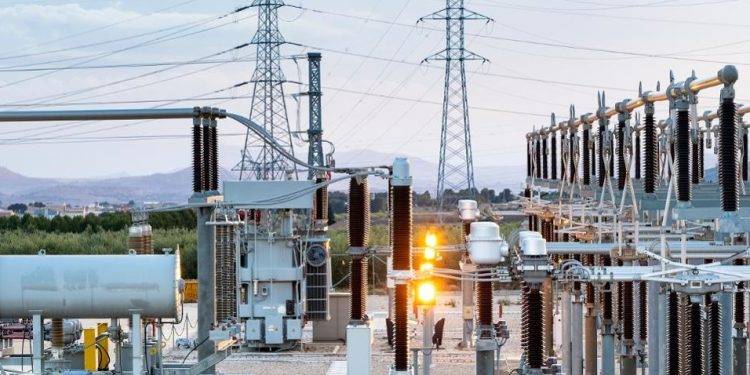The Institute for Energy Security (IES) has raised alarms over the deteriorating state of Ghana’s power sector, despite the government inheriting a relatively stable framework in 2017. Once a critical driver of economic growth, the power sector now faces financial inefficiencies, mounting debts, and widespread public distrust, threatening national development.
In 2017, the incoming New Patriotic Party (NPP) government inherited an energy sector with significant potential. Key achievements included:
- Sufficient Capacity: Ghana had an installed power generation capacity of 4,599 MW, with a dependable capacity of 4,127 MW against a peak demand of 2,078 MW in December 2016.
- Stabilizing Measures: The Energy Sector Recovery Levy (ESLA) introduced in 2016 generated $650 million annually to clear debts and stabilize the sector.
- Natural Gas Transition: A move towards domestic natural gas resources from fields like Jubilee and Sankofa had reduced reliance on expensive liquid fuels.
- Operational Profitability: State utilities such as the Electricity Company of Ghana (ECG) and Volta River Authority (VRA) recorded profits.
- Independent Power Producers (IPPs): Strong partnerships with IPPs ensured uninterrupted operations.
Despite these gains, the sector now grapples with operational setbacks, missed opportunities, and systemic challenges that undermine its sustainability.
Missed Opportunities and Current Challenges
While generation capacity has expanded to 5,639 MW by the end of 2023, demand growth to 3,618 MW has exposed inefficiencies in capacity utilization. Frequent outages have disrupted businesses and households, undermining productivity.
- Financial Mismanagement: Utilities like ECG have seen technical and commercial losses exceeding 30%, while monthly revenue collections fall short of expectations by nearly 50%.
- Debt Accumulation: ESLA’s funds were misapplied through collateralization, leaving over $2 billion in debt.
- IPPs in Distress: Independent Power Producers, contributing over 60% of Ghana’s power, face severe financial strain due to unpaid arrears. In 2024, multiple IPPs, including Asogli Power, halted operations, intensifying the energy crisis.
- Transparency Concerns: Key data on power generation and system conditions, previously accessible on GRIDCo’s website, has been withheld, eroding public trust.
- Reliance on Imports: Despite Ghana’s gas reserves, a failure to optimize domestic resources has increased dependence on imported fuels, exposing the sector to price volatility.
The power sector's decline reflects governance lapses rather than technical challenges. Issues like fund diversion, lack of transparency, and inefficiencies have exacerbated the crisis.
Steps Toward Recovery
The restoration of the Asogli Power Plant, though a positive step, offers only partial relief. Systemic reforms are essential to ensure a stable, reliable power supply. IES has outlined several recommendations:
- Settle IPP Arrears: Timely payments to IPPs are critical to restoring generation capacity and investor confidence.
- Enforce Revenue Distribution Mechanisms: Adhering to the Cash Waterfall Mechanism (CWM) would ensure fair revenue allocation across the sector, alleviating financial bottlenecks.
- Promote Transparency: Reinstate access to GRIDCo’s daily power data to enable informed decisions and rebuild public trust.
- Expand Gas Infrastructure: Investing in additional gas processing plants and storage facilities would enhance domestic gas utilization, reduce operational costs, and strengthen energy security.
- Address Utility Inefficiencies: Measures to reduce technical losses and improve revenue collection are vital for sustainable operations.
- Reliable Load Management: Developing a dependable load-shedding schedule could minimize disruptions and help businesses plan effectively.
- Foster Renewable Energy: A long-term energy policy focusing on diversification and renewable sources is essential for resilience and sustainability.
The Cost of Inaction
The recurring load-shedding, or "dumsor," disrupts businesses and households, forcing many industries to rely on costly diesel generators. These increased production costs reduce competitiveness and hinder economic growth. Furthermore, restricted access to critical information undermines stakeholder confidence in the government’s ability to manage the sector effectively.
The government’s reactive approach, such as restoring the Asogli plant, offers only temporary relief. Without addressing core issues like financial mismanagement and operational inefficiencies, the power sector will remain vulnerable to future crises.
A Call for Urgent Action
Ghana’s energy challenges are not insurmountable. The resources and opportunities inherited in 2017 provide a foundation for recovery. However, restoring the power sector requires bold, transparent, and sustainable reforms. The government must act decisively to resolve debt issues, enhance operational efficiency, and rebuild investor confidence.
A reliable power sector is critical for economic growth, industrialization, and the well-being of citizens. Addressing these systemic challenges is not only a technical necessity but a governance imperative. Ensuring sustainable energy for Ghana’s future depends on immediate action and a commitment to long-term stability.




No comments yet
Be the first to share your thoughts!